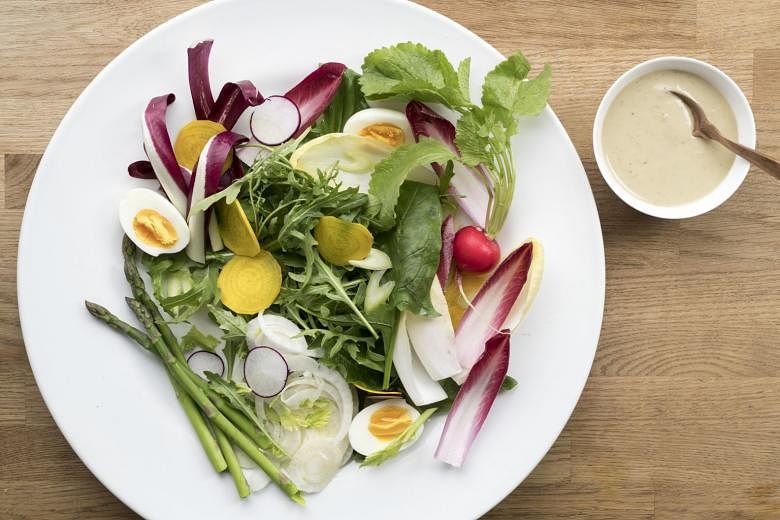WASHINGTON (WASHINGTON POST) - If you're the type that likes to characterise millennials as basement-dwelling moochers who can't fend for themselves in the real world, have we got news for you. A new survey commissioned by Porch.com is full of tidbits that people who hate on millennials are going to love.
Like the fact that nearly 60 per cent of them don't know how to make salad dressing. More than 25 per cent judged themselves incapable of preparing a birthday cake from a boxed mix. When shown a picture of a butter knife, only 63 per cent of millennials knew what it was.
While these stats provide easy fodder for all the most popularly held assumptions about millennials - that they're coddled and entitled - there's more to it than that.
First of all: Age is a factor in cooking expertise. Seventy percent of boomers can carve a turkey, but only 40 per cent of millennials can - and that's because, obviously, boomers have hosted way more Thanksgiving dinners. (Also worth noting: The survey can't measure a person's actual skill, so respondents may be downplaying or playing up their skills in the kitchen. And the sample size is only 750 people.)
A better study would ask boomers and Gen Xers what kitchen skills they had when they were in the age range that millennials currently are - approximately 22 to 37, depending on which definition of the generation you use.
Boomers probably would have ranked themselves higher in these skills when they were in their twenties, too: They were taught home economics in school, a course that has been cut from many curriculums across America. They married younger, started families younger and were responsible for cooking for others at a younger age. And they didn't have the internet to teach them how to do it - which may have benefited them in certain ways.
Perhaps part of the reason only half of all millennials can roast a chicken is that their ease with technology has made it harder for them to learn how to cook - even though they might know more about foods that their grandparents never encountered, such as kombucha or quinoa. Blame it on a factor called "cognitive offloading" - relying on Google or Pinterest to remember a recipe or technique for you, rather than committing it to heart, writes the New York Post.
"Offloading robs you of the opportunity to develop the long-term knowledge structures that help you make creative connections, have novel insights and deepen your knowledge," said Benjamin Storm, PhD, an associate psychology professor at the University of California, Santa Cruz.
Millennials and Gen X were more likely to get their recipes from the internet than boomers, according to the study, and millennials reported watching online cooking videos far more than older generations.
A 2015 Google study found about 60 per cent of millennials cook with their smartphone in hand. But their searches can be incredibly basic: One of the most popular terms was "How to make the best baked potatoes."
Millennials are anxious about their lack of skills, one Canadian study found: only 31 per cent of 18-to-29-year-olds felt confident in the kitchen, as opposed to nearly half of adults over 50.
That lack of confidence may lead them to repeat rote, uninspiring meals: According to a study commissioned by the British retailer and service provider Co-Op, one third of millennials rely on a handful of dishes they know well.

